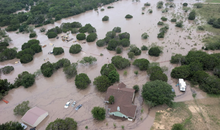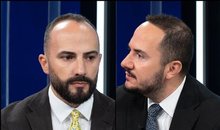
 Flash News
Flash News
With the eagle symbol, Torino presents the purchase of the Albanian national team defender
Eraldo Muçi's disappearance, his mother's testimony comes to light: My son was friends with Sanço
28 arrested in Italy and Spain for drug trafficking, including an Albanian
Residents clash with police in Theth: We are on our land
The case of the murder of the Italian teacher is reopened, a 47-year-old Albanian suspect is suspected
EU targets health, education, police and cadastre as areas of corruption
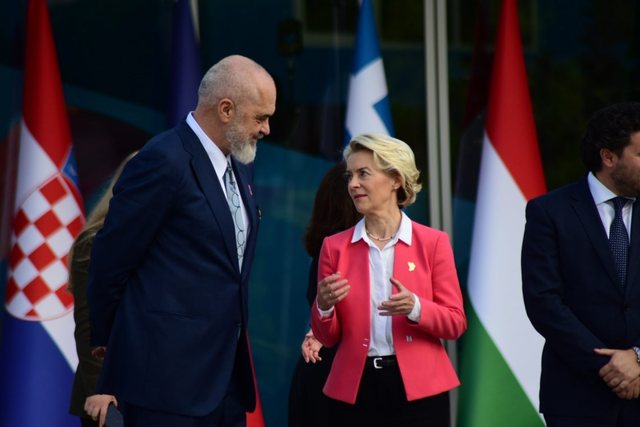
The European Commission singled out the health, education, police and State Cadastre sectors as areas where the risk of corruption remains high, despite commendable efforts by SPAK and GJKKO to combat Albania’s number one problem. In its annual Rule of Law report, [Link] in which the Commission assesses the state of the rule of law in member states and candidate countries, published on Tuesday, it highlights the convictions by appeal of 106 people in 24 cases, decisions given between 1 January and 31 December 2023 at the Special Court of Appeal, including high-ranking officials. The report notes, however, that the institutional framework for preventing corruption “remains largely ineffective”.
“The General Directorate for Anti-Corruption was transferred from the Ministry of Justice to the Minister of State for Public Administration and Corruption in June 2024,” the report notes.
“Deficiencies continue in this directorate’s capacity to effectively oversee the implementation and evaluation of preventive measures, in addition to overall risk assessments [for corruption],” the report states.
“Some efforts have been made, particularly in areas with high risk of corruption, but effective implementation has yet to be demonstrated,” the report further states.
The commission appears to have joined the concern raised earlier by SPAK head Altin Dumani about the lack of reporting to the prosecution from public institutions and public officials, noting that over the past year "the number of referrals fell even lower."
The State Police, whose image has been severely damaged in recent years by the exposure of a number of senior officials involved in organized crime structures, occupies a separate section in the Brussels report as a particular concern. The report notes that the Police Supervision Agency has increased its activity with the referral for criminal prosecution of 463 police officers. These efforts are however considered in the report as insufficient and the State Police is considered to be “still very vulnerable to corruption”.
The High Inspectorate for Declaration and Control of Assets and Conflict of Interest (HILDAKKI), the institution tasked with analyzing the asset declarations of senior officials to see whether or not there are unjustified assets, is not well evaluated in the report.
"Deficiencies remain in terms of the efficiency of the verification of assets and interests by the HIDACACI, including high-risk profiles," the report notes.
"There has been no progress in terms of the effectiveness of verification and further action appears to be needed to verify assets potentially hidden through private entities or front persons," the report states.
The report notes that the misuse of public funds during electoral campaigns “remains a concern” despite the initiative taken before the last elections by the CEC and SPAK. The report also considers as a “concern” the limited transparency in public procurement, especially public-private partnerships, while it considers as “inefficient” the mechanisms of internal control and inspection in public administration, these key instruments to ensure that citizens are not exploited in their relations with public administration.
"The risk of corruption is considerable in health, education, as well as within the police and the State Cadastre Agency," the report states.
The report has four chapters, one of which is dedicated to the media. The report reiterates Brussels' previous demands for comprehensive reform while emphasizing that concerns about the independence of Public Radio and Television have increased after the recent bipartisan process in parliament.
“High concentration in the media market continues to negatively impact media independence, while market penetration by high-profile business groups with political connections remains a serious concern,” the report states.
Preventive measures for the concentration of ownership in the media market are considered "limited" while the owners' connections to political interests are considered a "serious concern." Reporter.al
Latest news

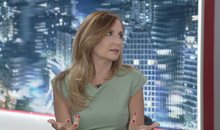
Tabaku: Salianji bore a political cost that no one in Albania has borne
2025-07-08 22:36:15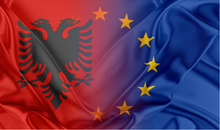


Sekretet për të shijuar verën si një ‘profesionist’
2025-07-08 21:45:06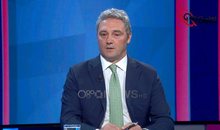

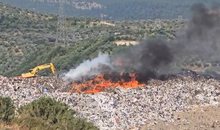
Albania's Waste Crisis: Toxic Smoke and Deep Governance Problems
2025-07-08 21:13:07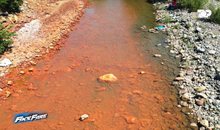
Alarming pollution in Fushë-Arrëz, copper factory waste turns the Fan River red
2025-07-08 21:07:14

Poll/ How do you assess the Prime Minister's intervention in local government?
2025-07-08 20:40:01
28 arrested in Italy and Spain for drug trafficking, including an Albanian
2025-07-08 20:24:14
Residents clash with police in Theth: We are on our land
2025-07-08 20:11:41
Death of 27-year-old in Lipjan, Osmani: To be investigated independently!
2025-07-08 20:06:52
Trump promises US will send more weapons to Ukraine
2025-07-08 19:54:25

EU targets health, education, police and cadastre as areas of corruption
2025-07-08 19:23:34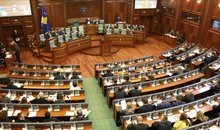
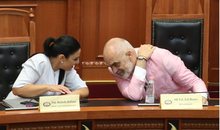
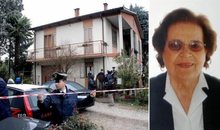
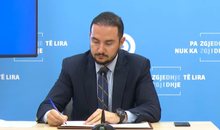

Salianji after his return: I did not oppose for functions, but for vocation
2025-07-08 18:23:15
Will he run in the 2029 elections? Here's how Salianji answers
2025-07-08 18:16:09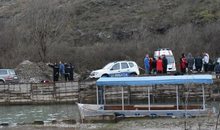
Boat captain drowns after diving into water to save two tourists in Shkodra
2025-07-08 18:05:12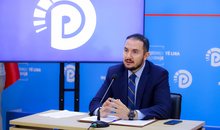
Salianji from the DP headquarters: I brought a drug trafficker to justice
2025-07-08 18:03:26
After Fier, Rama "landes" in Durrës, dismissals expected
2025-07-08 17:53:32
Ervin Salianji arrives at the blue headquarters, welcomed by supporters
2025-07-08 17:45:12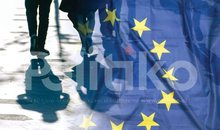
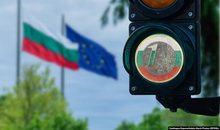
EU approves final steps for Bulgaria's Eurozone membership
2025-07-08 17:43:06

Zhupa after Salianj's release: Inspiration for every opposition member
2025-07-08 17:19:39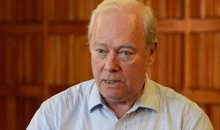
Actor David Killick passes away
2025-07-08 17:09:23


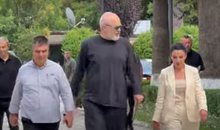
Threatened with dismissals, Rama arrives at the Fier municipality
2025-07-08 16:39:19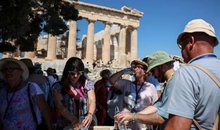
Extreme temperatures temporarily close Acropolis in Greece
2025-07-08 16:30:34

A plot of cannabis is discovered in Mazha, Kruja
2025-07-08 16:13:48

Republika Srpska allocates additional 22 million euros for lobbying in the US
2025-07-08 15:52:04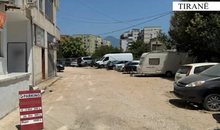

Spices that protect you from mosquitoes!
2025-07-08 15:30:03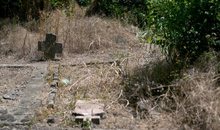
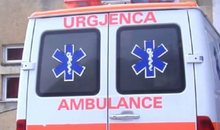
Accident on the Vlora-Qeparo axis, one injured
2025-07-08 15:11:52
Berat, 17 years part of UNESCO's world heritage
2025-07-08 15:03:30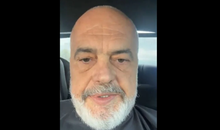
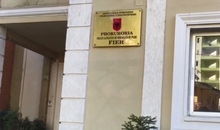

Cost of living increases, inflation rises to 2.4% in June, driven by food
2025-07-08 14:29:54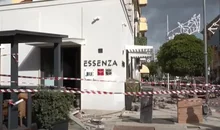
VIDEO/ Restaurant roof collapses in Italy, one victim and ten injured
2025-07-08 14:18:44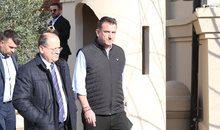
Requested release from cell, Supreme Court leaves Veliaj in prison
2025-07-08 14:07:41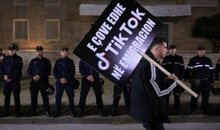
TikTok shutdown/ Austrian media: Rama benefited politically from the app ban
2025-07-08 13:48:25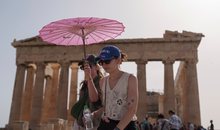
Acropolis temporarily closed due to heat
2025-07-08 13:31:09

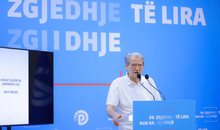
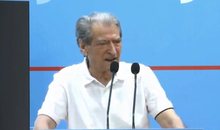
Salianj's release/Berisha: He was politically condemned by Rama and Xhafa!
2025-07-08 13:00:13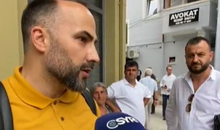

Knife attack on Peshkopia Boulevard
2025-07-08 12:44:10


Fier Court decides on the conditional release of Ervin Salianj
2025-07-08 12:15:23
Cost of living increases, inflation rises to 2.4% in June due to food
2025-07-08 12:00:16
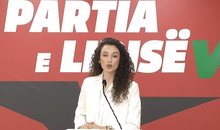
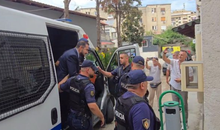
Requesting conditional release, Ervin Salianji arrives at the Fier Court
2025-07-08 11:16:36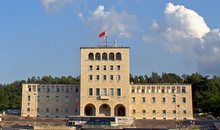
The first phase of university applications begins today
2025-07-08 11:10:52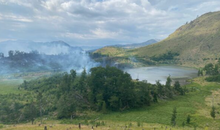
Fire in Lura, flames endanger the National Park
2025-07-08 10:53:43
Trump warns of 35% tariffs on Serbia and 30% on Bosnia and Herzegovina
2025-07-08 10:37:32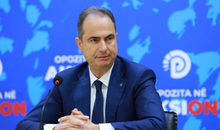
Thethi rooster and the dung cock
2025-07-08 10:24:01

Fire in Dukat endangers Llogara National Park
2025-07-08 10:01:39
International drug search: 36-year-old arrested in Durrës (NAME)
2025-07-08 09:50:48
Thethi, tourists "criticize" modern trend
2025-07-08 09:39:54
Fire on Mount Dukat still active, Llogara National Park at risk
2025-07-08 09:28:12
Veliaj's appeal to be heard today in the High Court
2025-07-08 09:16:02
"Bad sign for democracy"/ Parliament neglects reporting by institutions
2025-07-08 09:04:56
Today's hearing at the Fier Court, Salianji requests conditional release
2025-07-08 08:56:39
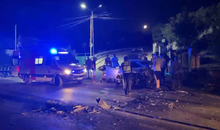

Horoscope, what do the stars have in store for you today?
2025-07-08 08:16:19
Weather forecast/ How temperatures will vary throughout the day
2025-07-08 08:02:37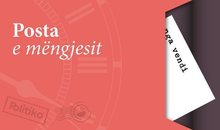
Morning Post/ In 2 lines: What mattered yesterday in Albania
2025-07-08 07:48:30


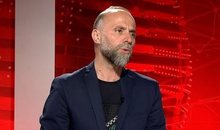


Marrëdhënia që s’është romancë, por s’është as thjesht kolegiale
2025-07-07 21:39:13
Citizen is asked to pay 2.5 million for a non-existent meter
2025-07-07 21:28:03




What is the ideal air conditioner temperature in summer?
2025-07-07 20:53:46
GJKKO left him in prison, Meta appeals the decision
2025-07-07 20:38:05
Where is Ronaldo after missing Diogo Jota's funeral?
2025-07-07 20:38:04

Messages from the author who killed Ilaria Sulla in Rome are revealed
2025-07-07 20:20:12